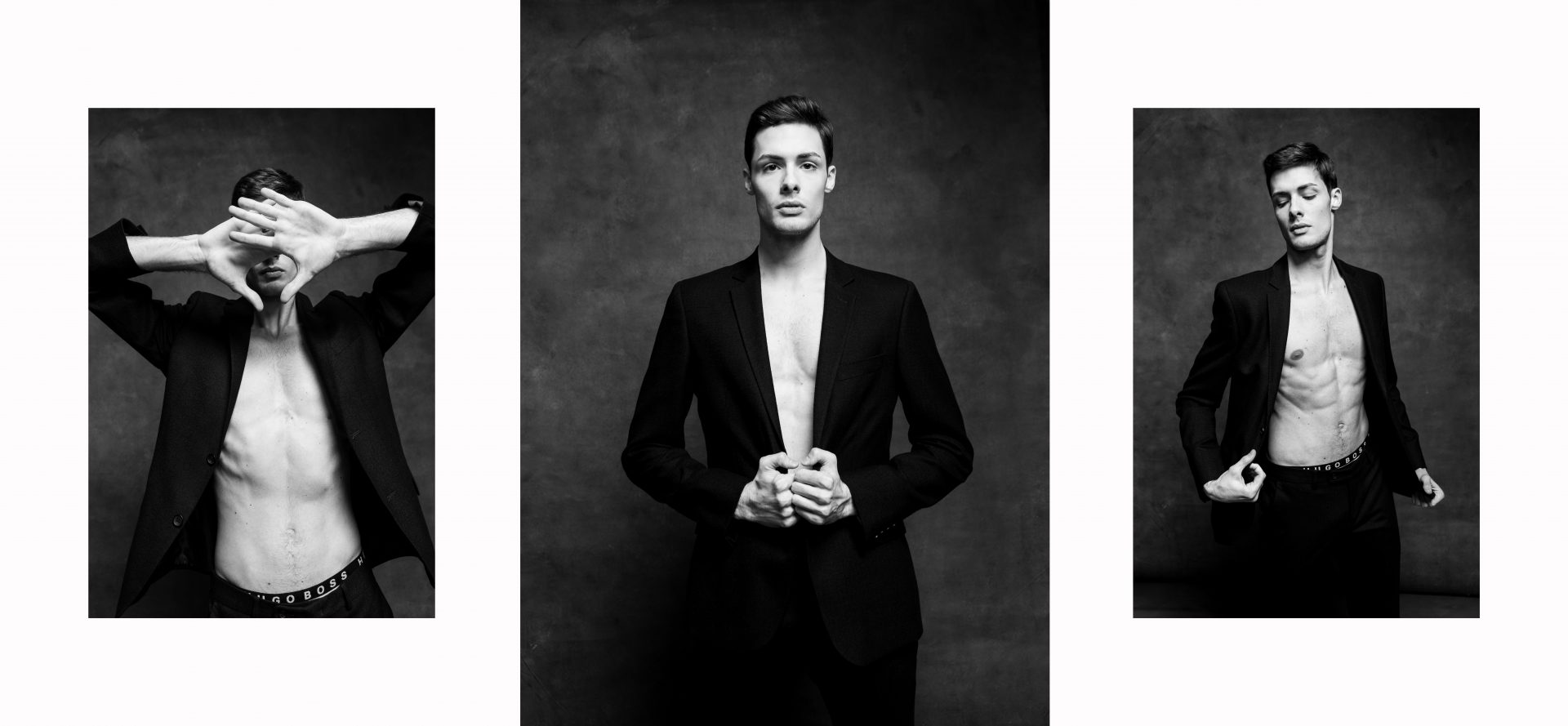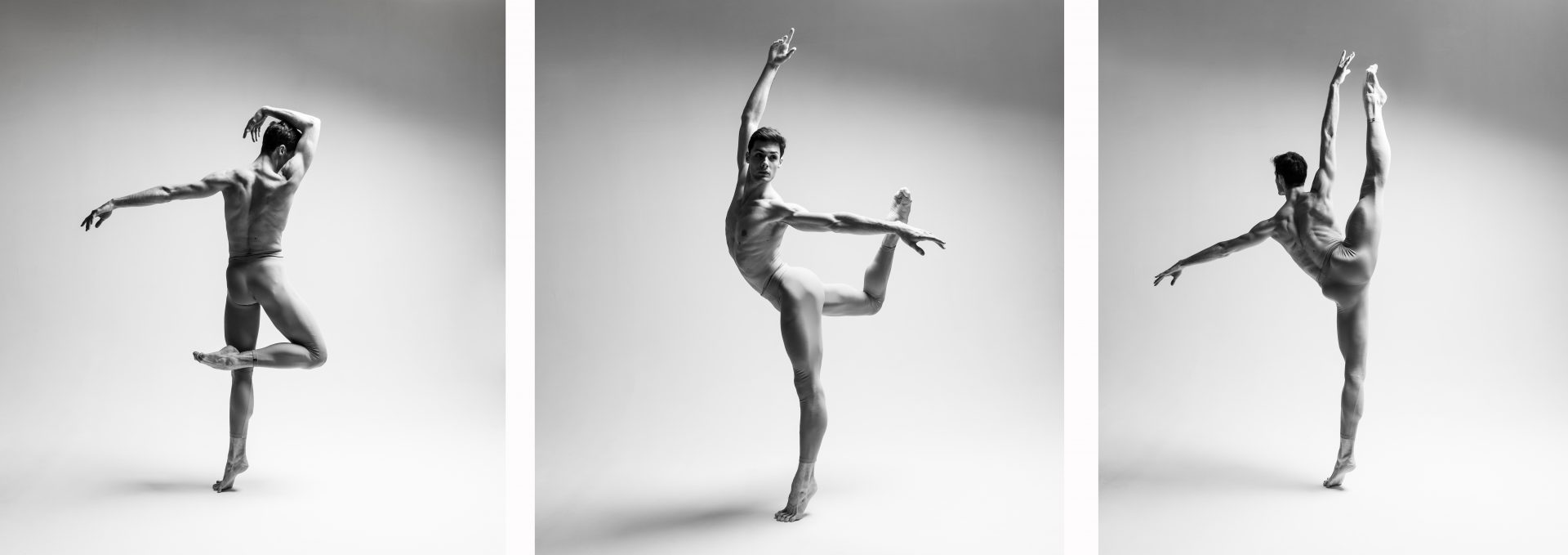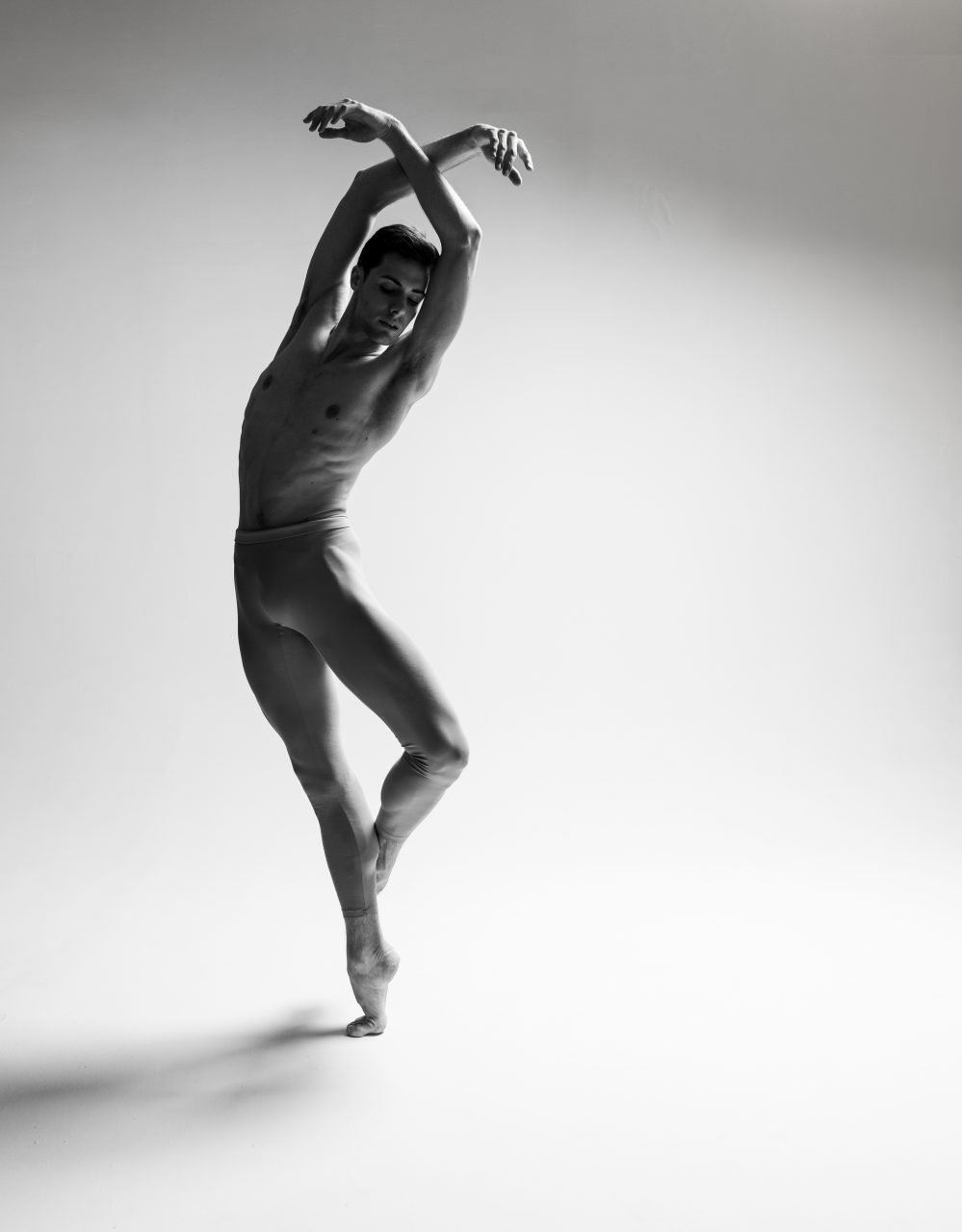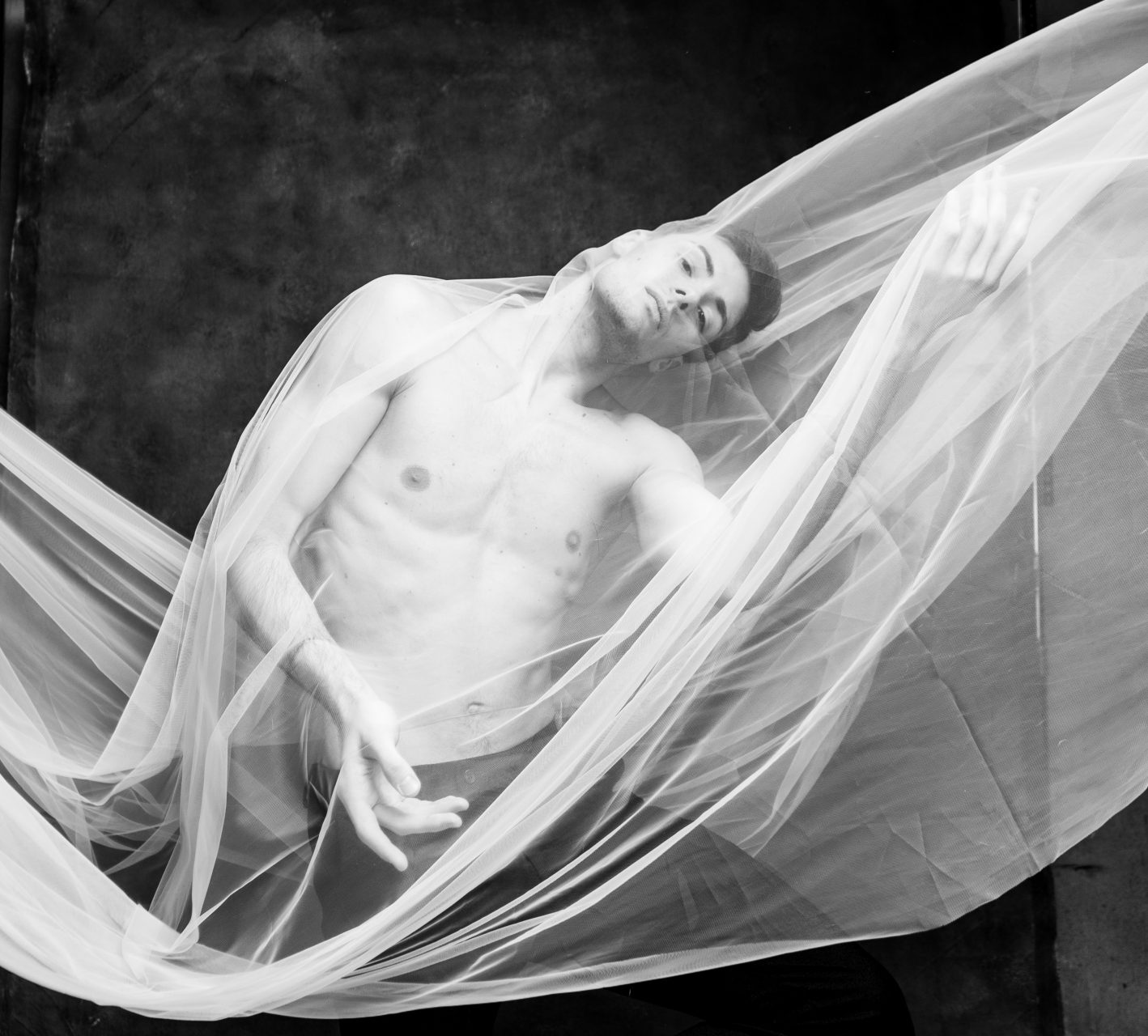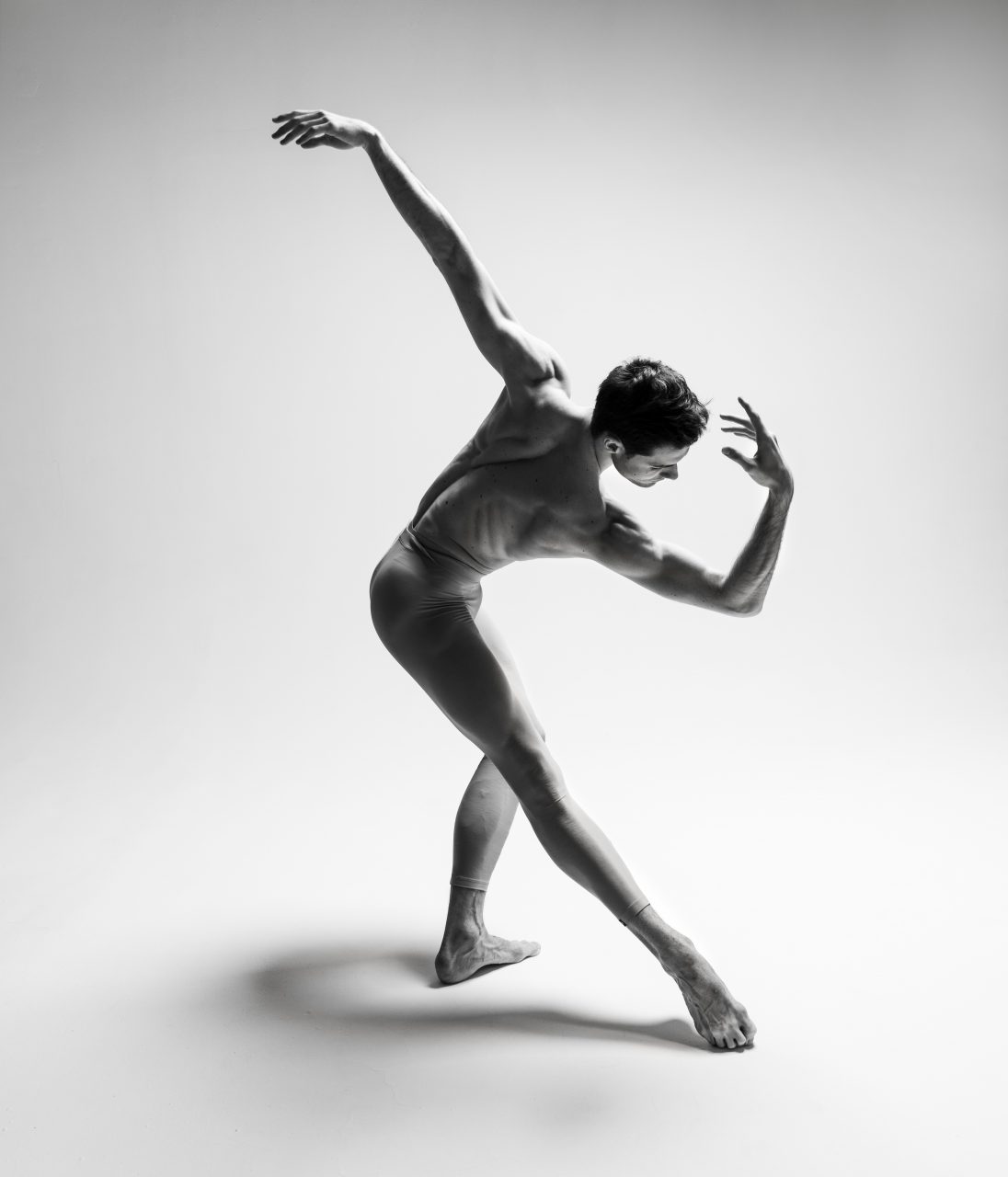Jacopo, in spite of being a well-known ballet dancer in our country, there is still a little information about you. I am sure, the audience would love to know how everything has begun. Tell us, please, about your family, your parents, about you home-town.
I was born in a very small town in Northern Italy, not far from Milan. And my family was not about ballet. We faced all that ballet world together – it was absolutely new for everyone. The beginning was quite natural for me – I just watched a ballet on TV, tried to repeat the movements and liked it. Then I asked my parents – “Can I study ballet?”. And they agreed with pleasure. There was a small ballet studio in our town, and that’s how I started at the age 5-6. I liked training and dancing very much. And when I turned 11, there was an opportunity for audition to The Ballet School of La Scala and we decided to get the chance. My family always taught me to have the concrete and reserved attitude towards everything. And they said: “Let’s try, it will be great if you succeed! If not, anyhow it will be the experience for life”. I entered The School, everything has gone very well and, maybe, a little bit unexpectedly. My family always supported me. Our town was an hour from Milan, my parents carried me there and back. I am very grateful to them for all they’ve done!
Before joining the Bolshoi Theatre, you successfully worked for a season in La Scala Theatre, you danced many leading roles… What prospects did you have in La Scala? Was it difficult to refuse from what you possessed?
When I joined La Scala, Makhar Vaziev was an artistic director of the ballet troupe, and it turned that I worked a lot under his guidance in the theatre also as with the teacher. He trained me. And I had danced many leading parts, first of all – The Sleeping Beauty with Svetlana Zakharova. And it was extremely important moment in my career. So it was a good year for me in La Scala, I was training a lot with Makhar Vaziev, Vladimir Derevianko, Olga Chenchikova. And then we recognized that Makhar Vaziev was invited to lead the Bolshoi Ballet. At first, how better to say… it was like the shock, very unexpectedly. It was so wonderful to work under his guidance and I wanted to continue the artistic development with him. Of course, I realized it was a great chance for his career. We talked a lot about future, we didn’t even know who would come after to direct La Scala Ballet. Nobody knew. But I had a huge desire to move on with Makhar Vaziev. And he was also interested in how my life was coming through, so we were in touch. Of course, I wished to join The Bolshoi Theatre with him, because there are so many opportunities for realizing yourself onstage.
Did you have doubts when you were invited to the Bolshoi Theatre? Did the question appear – to go or not to go?
Surely, in these circumstances you always think about the changes in life to come… About how different that world may be. And Makhar Vaziev worried about it. First, I came to see. I was taking classes, watching all the shows. And everything was so captivating, that my wish became even stronger. And so I have stayed.
Have you burnt the bridges to La Scala? There is always an option of turning wrong.
Yes, but it is always when you make important decisions. You constantly think what to go right, what to go wrong… But I simply knew and believed if I come here I can dance a lot, work a lot, have a professional growth. The feeling of the unique chance it was. Moreover, it was first time the Italian dancer to work in the Bolshoi Ballet. And I felt I wanted that so much, and I am happy that everything has turned out.
What kind of difficulties have you faced in Moscow – not only in creative and professional field but also in common everyday life? What was the most difficult?
Right after my arriving – the language, it was very difficult because I had tiny vocabulary to speak and to understand. And I had to receive the documents, to make an appointment to the doctor. Of course, in the beginning all was very hard. But it easily came to me that I had to learn Russian quickly. Secondly, it was the totally new experience with the Italian artist for The Bolshoi, and it took some time, but also helped patience developing, and this is a good life lesson. So I started to learn Russian, there were no other variants.
And you’ve learned it so well, within two years… How have you managed? Have you learned it with the teacher?
I’ve learned by myself. Started to watch and study grammar, the basics, then I made translations from Italian to Russian, I watched different films. And after the understanding came, when I began to speak everything went better. I understood many things better. Life to obtain totally different colours when you know the native language of the country you live in.
And what were your first impressions from the Moscow weather?
Definitely, such weather requires adaptation (smiling). The first winter of my arrival was very severe – the real Russian winter with minus 29 degree by Celsius. Naturally, the body behaves differently when it is so cold. Also the lack of sunlight, and so your physicality, your body feelings react in a different manner. You have to get used to it. But… be patient and get used (laughing). Now I have a normal attitude towards it.
And if to talk about the professional differences? How big is the disparity between the inner organization of European and Russian Theatre? Talking about discipline, the rehearsal schedule?
The disparity is big. Here in Moscow there are more work and shows. And we prepare within a month not only one show as they do in Europe – for example, a premiere and that’s all, or a block of the same performances for month and then a break.
Here we have everything at once, or simply we have many performances, and, therefore, more work. But I wanted to come here to do my job (smiling). And there is a good coach system in the Bolshoi – you constantly work with the teachers – from early morning till late evening. They support you in studio and in life. I am training under the guidance of Alexander Vetrov and I am happy to work with him. This is important, as you feel nervous, sometimes overstressed because of many working hours, lots of performances … But you have a team with your coach and it helps. I consider this Russian system to be great! This tradition goes from the older times and it is unique.
There are labor unions in Europe and they a just somehow the working hours, the rehearsal amounts. It is not about Russia, and the schedule can be unrationed. Was it easy to adapt?
Yes. Because the labor unions do not always bring benefit. The rules they set can help the system, but not the creative thought. I think we should not be strictly aspired to them. And the working time should be determined by the benefits it brings. It should take as much time as it requires.
And I am glad to be able to dedicate much time for work here. Russia is the country for ballet and the system works perfectly to achieve the maximum results. But also the people here are for art and creativity.
But the activity is huge and the stress exists. What are your secrets to cope with tension? How are you relaxing after the performances? Someone goes to Russian sauna, for example…
Everyone chooses his own leisure. As we spend our days mostly in the Theatre, there is a little time for rest or for travelling. To get the real relax, I love just to lie down and listen to the music, watch movies, read books… Although sometimes on the contrary I prefer walking. This helps also. And, yes, I go to the sauna (smiling).
Jacopo, there is an obvious difference between Russian and Italian ballet methods. What have you found new and different after coming to Moscow? And now, are you mostly trying to adapt your dance to the Russian tradition or are you bringing something specifically Italian and personal to the Russian ballet stage?
It happened when at school, at first, I was studying ballet with the Italian teacher, and then with the Russian teacher for three final years. I was close to the Russian tradition and style even at those times. After in La Scala Theatre – Makhar Vaziev, Vladimir Derevyanko, Olga Chenchikova – all were from the Russian ballet world. But when I joined the Bolshoi Theatre… The Bolshoi has its unique soul. The teachers keep the style and transfer it to the dancers. And I wished to gather it. But definitely one has its own individuality. I suppose today I am closer to Russian ballet and The Bolshoi traditions, but my character and my personality, my individual features always exist – onstage and in life.
Jacopo, it’s hard to argue you are extremely handsome. Together with the male form, with your human beauty, you’ve got the perfect physicality for ballet. Was your appearance always a support for you in career or could it make difficulties sometimes?
How to say… I always tried not to cultivate this, not to overthink. Yes, they sometimes say – “Wow! You are so handsome”. But I’ve never rested on it. Of course, the attractive body is always good for ballet. But you must work and dance to gain the technic. Somebody told me once – you may be handsome, but it’s not that interesting. But to dance gorgeously, to be profound, to keep moving and searching, to give more, to apply your inner sources… I always have that restriction and it saves from mistakes.
You’ve already mentioned your first dancing with Svetlana Zakharova in The Sleeping Beauty at La Scala. And after your joining the Bolshoi Ballet you’ve already performed together. How is this feeling like – to dance with one of the greatest ballerinas of our times?
It is so exciting to work with such a ballerina, personality and artist… I always remember those times, my first steps in La Scala, I was very young and she gave me an unbelievable opportunity to dance with her a big premiere. These are unforgettable emotions, because she has supported me, helped me, she took a risk to dance with me. I am happy we continue our common creative work. Not long ago we performed Caravaggio by Mauro Bigonzetti in Italy and in Prague, then we danced La Bayadere at the Mariinsky Theatre. The work is fascinating. Svetlana is a deeply professional person and we are in good relationships. From my side it is a huge respect. But in the studio we have a nice and friendly atmosphere. Definitely, when dancing with such a unique ballerina not only with her professional abilities, but also with her character and her charm, you receive the greatest emotions.
Could you tell, please, a little more about Caravaggio by Mauro Bigonzetti. Have you prepared the piece with the choreographer? What are your impressions about this work?
When Svetlana told me about the duet I was very glad! First of all, it meant the common work, secondly it’s a beautiful duet, created by Mauro. In the beginning we prepared the piece with Mauro’s assistant Roberto Zamorano in Moscow. This duet is staged under the gorgeous music, there are many classical movements – positions, accents, tender musical moments… It was nice and fascinating to try the new choreography, to search for all these senses and nuances. We rehearsed in Moscow with Lyudmila Semenyaka and then with Mauro Bigonzetti himself. While interacting with the choreographer on his creation you find that interesting how he sees his own choreography performed by different dancers. Because they can also bring changes and the new colours appear. It was captivating job.
Shall we see the piece in Russia performed by Svetlana and you?
I hope (smiling).
Jacopo, while being interviewed right after your arrival to Moscow, you’ve told about your dreams – to perform the part of Solor and to enter the stage of the Mariinsky Theatre. It has turned out, that your dreams have come true in December. Our congratulations! And we wish you further luck for dreams to come true. But please, tell us – why was it Solor and why was it Mariinsky?
The Solor’s part was my child dream from school-time. When I saw the performance I just caught a thought – “What a magnificent ballet!” And I’ve got a huge wish to perform the role. And the Mariinsky stage, together with the Bolshoi, is one of the main historical stages in the world from the times of the Imperial Theatre, from the Times of Petipa, especially for classical ballet. When I was a student I often watched the videos from these theatres and thought if I ever could be good enough I would have a rare chance to enter these stages (smiling). And now I constantly dance in the Bolshoi Theatre, I have danced in Mariinsky Theatre and maybe I would have other opportunity. It’s really great! Surely, it doesn’t mean I have stopped growing. On the contrary I realize that I need to work more, to train and to rehearse, to improve myself… But anyhow, it is a big achievement for me, like a blessing.
What do you like most of all here in Russia, in Russian culture, in Moscow? And how your expectations met the reality?
I’ve realized the great difference after I have come here. Russia is a highly individual and special country and I was curious to touch and understand its traditions, people’s thoughts and habits. The most interesting to me in Russia is cultural identity, its flavor. Lots of traditions have come from the old times and they are preserved. It is unique. All these holidays – the New Year, The Old New Year – the manner people prepare for them. I had an opportunity to listen to Cossack’s singing singing, to see the performing of national dance troupe. Such an original culture is a rare thing in the modern world. And of course, the Russian ballet world is very interesting itself.
About my favourite places in Moscow, I like Patriki, especially in summer they are nice with lots of cafes, people walking… They have a fascinating atmosphere.
Have you gained friends quickly in Moscow?
It became easier after I started to speak Russian (smiling).
Jacopo, what are your current dreams and goals? How do you wish to find yourself in future, what are you aiming to?
Surely, many good things have already happened in my life. But I realize it’s only the beginning. There are lots of goals to strive and to achieve. That’s why I am trying to be better with every day in the studio. The most important is to grow. The current missions are: to improve the existing parts, to get into the new performances, to gain the new repertoire and to continue improving myself. And, maybe, one day to be promoted to the Principal Dancer with the Bolshoi Theatre. We’ll see, I am trying and working for it.
We wish your dream to come true very soon! And are you the man of goal or you prefer to move with the natural life flowing?
How is it better to say… Usually, our dreams, ambitions and wishes give us a huge impulse. I am a big dreamer, but once I tell myself – “Enough, back to reality”. To achieve all you want you need to build yourself, to work with force, and then it goes how it goes. But the main goal in life must exist.
Interview Katerina Bornovitskaya
Photo Alisa Aslanova
Total Look Men’s Look




